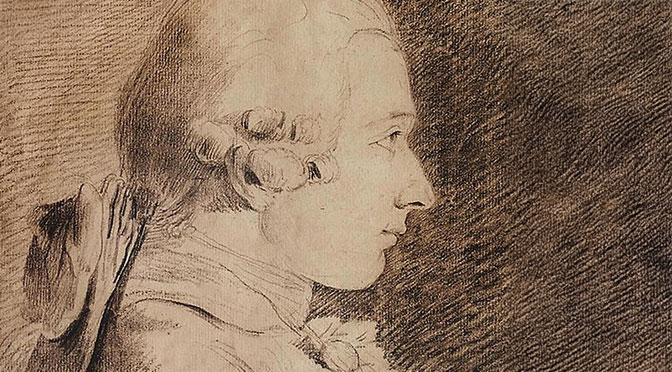Marquis de Sade, whose name has given rise to the word “sadism”, has had a profound and complex influence on literature and culture as a whole. His works, especially “The 120 Days of Sodom”, “Justine” or “The Philosophy in the Boudoir”, have not only pushed the boundaries of moral and sexual narrative, but have also influenced various literary and philosophical discourses:
Literary innovation and provocation
- Provoking taboos: De Sade brought tabooed topics such as violence, sexuality and power into focus in a way that was extremely provocative for his time. This inspired literature to openly address tabooed topics and test the moral boundaries of society.
- Structure and Style: De Sade’s works are known for their detailed, almost scientific description of acts that were often considered pornographic or obscene. This structure later influenced authors such as Georges Bataille, who sought a similar, unvarnished depiction of human nature and its dark sides.
Philosophical and ideological influences
- Existentialism and nihilism: De Sade’s philosophy, which emphasizes the absence of divine order and the associated freedom of people, has influenced philosophers like Nietzsche and later existentialists like Sartre. De Sade questions what morality, ethics or law can mean in a world without God.
- Freedom and individualism: His works emphasize the absolute freedom of the individual, which has led to discussions about the nature of freedom, power and oppression. These themes were later taken up by authors and thinkers such as Camus and Foucault.
Influence on specific literary genres
- Pornographic literature: De Sade is considered one of the fathers of modern pornographic literature for his emphasis on sex and violence. His works have had a lasting influence on the form and content of eroticism and pornography.
- Surrealism and avant-garde: Surrealist artists and authors, such as André Breton, regarded de Sade as an inspiration for breaking with bourgeois morality and exploring the unconscious and social taboos.
- Postmodern literature: In postmodern literature, de Sade’s influence is found in the challenge to traditional narratives, the dissolution of dichotomies such as good and evil, and in the exploration of human darkness and perversion.
Cultural and social influence
- Discourse on sexuality and power: De Sade has paved the way for an open discussion of sexuality, power dynamics and the limits of human nature. His works have contributed to a broader understanding of sexuality and its relationship to power.
- Censorship and freedom: The censorship to which his works have been subjected has also raised questions about the freedom of art and expression, which in turn has influenced the discourse on censorship, artistic freedom and the role of literature in society.
De Sade’s influence on literature is multifaceted and goes far beyond mere provocation. In his extreme depictions and philosophical depth, he created a space in which the dark aspects of humanity can be examined both in literature and philosophy. His work remains a foundation for the study of human nature, morality, freedom and power in literature and beyond.

